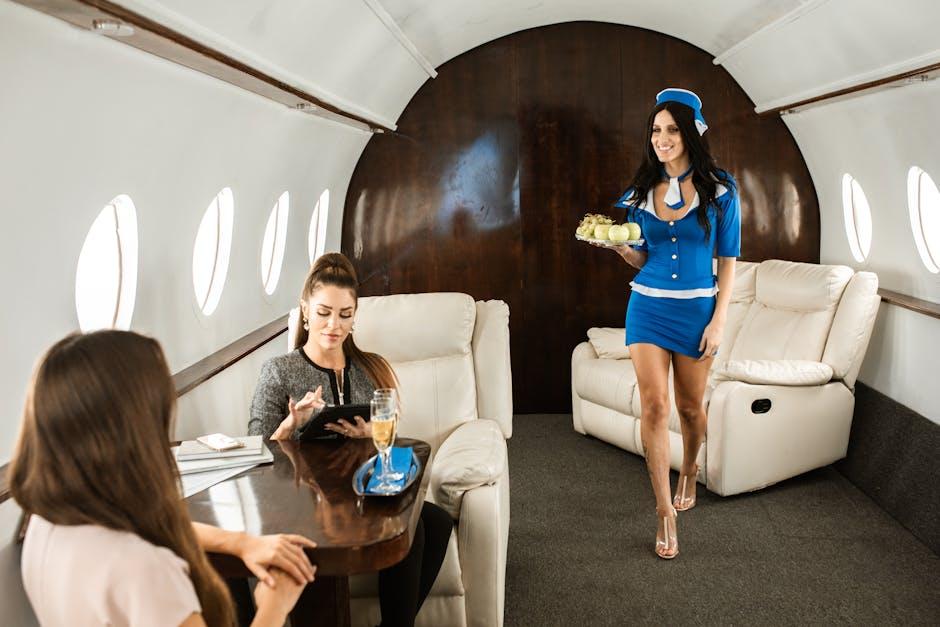In an era where luxury and exclusivity are often equated with superior experiences, the rise of elite travel services for children presents a paradox that warrants critical examination. While these high-end offerings promise unparalleled comfort and convenience, they inadvertently shield young travelers from the authentic experiences that traditional travel provides. This growing trend not only diminishes the educational and cultural benefits that come with exploring diverse environments but also cultivates a distorted perception of the world. By analyzing the implications of these exclusive travel services, we can better understand how they may be depriving children of the invaluable life lessons that come from genuine interaction with the world around them. Through this lens, we explore the potential long-term impacts on children’s development and the broader societal consequences of raising a generation within the confines of curated luxury.
Impact of Luxury Travel on Child Development
In the realm of high-end travel, children often find themselves enveloped in a cocoon of opulence, which can inadvertently limit their exposure to diverse cultures and genuine human interactions. While elite travel services offer unparalleled comfort and convenience, they may also foster a skewed understanding of the world. Luxury travel tends to create an environment where everything is meticulously curated, leaving little room for spontaneous discovery or adaptation to unforeseen circumstances. This controlled experience can stifle a child’s natural curiosity and problem-solving abilities, skills that are often honed through navigating real-world challenges.
- Limited cultural immersion: High-end travel often means staying in exclusive resorts or private villas, which can isolate children from local communities and cultures.
- Reduced adaptability: With every detail planned and executed flawlessly, children miss out on learning how to handle unexpected situations, a crucial life skill.
- Narrow social interactions: The elite travel bubble may restrict children to interactions within a similar socio-economic group, limiting their understanding and appreciation of diverse perspectives.
In essence, while luxury travel can certainly provide memorable experiences, it is essential to balance these with opportunities that promote real-world learning and development. By encouraging children to step outside the boundaries of opulence, parents can nurture a more well-rounded, empathetic, and resilient future generation.

Understanding the Disconnection from Authentic Cultures
As elite travel services meticulously curate every detail of a family’s journey, children often find themselves enveloped in a bubble that insulates them from the vibrant pulse of the destinations they visit. This curated experience, while luxurious, frequently results in a disconnection from the authentic cultures that define these locales. Instead of immersing in the local way of life, children may encounter a sanitized version, devoid of the spontaneity and authenticity that comes from wandering through bustling markets or engaging with local communities. This detachment can lead to a narrow understanding of the world, where cultural experiences are reduced to mere spectacles observed from a distance.
- Superficial Engagement: Visits to iconic landmarks are often prioritized over exploring lesser-known, culturally rich areas.
- Pre-packaged Experiences: Activities are designed to fit into a schedule, leaving little room for organic interactions with locals.
- Homogenized Accommodations: Staying in international hotel chains can create a barrier to experiencing local living environments.
The consequence is a generation that may grow up with a skewed perception of global cultures, missing out on the nuances and diversity that are essential to fostering a genuine understanding and appreciation of the world. By allowing children to step outside the confines of elite travel services, we open doors to rich, transformative experiences that can shape their worldview in profound ways.

Encouraging Experiential Learning Over Comfort and Convenience
In today’s world, elite travel services often focus on providing comfort and convenience, but at what cost? For children, this could mean missing out on invaluable real-world experiences that foster resilience, adaptability, and a deeper understanding of diverse cultures. When travel is reduced to luxury and predictability, the opportunity for spontaneous learning is significantly diminished. Children become passive participants in their own journeys, shielded from the vibrant complexities of the destinations they visit.
- Immersive Cultural Interactions: By stepping out of five-star hotels and exploring local markets, children can engage directly with different cultures, enhancing their empathy and social skills.
- Problem-Solving Skills: Navigating public transportation or figuring out directions in a foreign city can significantly boost a child’s confidence and resourcefulness.
- Language Acquisition: Real-world travel encourages children to practice new languages in authentic settings, improving their communication abilities far beyond classroom learning.
These experiences are not just about learning; they are about growing, shaping young minds to be more open-minded and globally aware. Prioritizing experiential learning over comfort does not mean compromising on safety, but rather embracing the world in all its raw and educational beauty.

Recommendations for Parents to Foster Genuine Travel Experiences
Parents looking to nurture authentic travel experiences for their children can start by emphasizing meaningful interactions over luxurious amenities. Encourage your children to engage with locals by participating in community events or visiting local markets. This fosters a deeper understanding of the culture and lifestyle of the places they visit. Choose accommodations that reflect the local character, such as homestays or boutique hotels, rather than international chains that offer a sanitized, uniform experience.
- Incorporate Educational Activities: Plan visits to historical sites, museums, and cultural centers to provide context and depth to the travel experience.
- Prioritize Outdoor Adventures: Engage in activities like hiking, cycling, or exploring natural parks to connect with the environment and understand regional biodiversity.
- Encourage Language Learning: Motivate your children to learn basic phrases in the local language to facilitate communication and enhance their travel experiences.
Ultimately, the goal is to inspire curiosity and appreciation for the diversity and complexity of the world, beyond the polished veneer of elite travel services.



